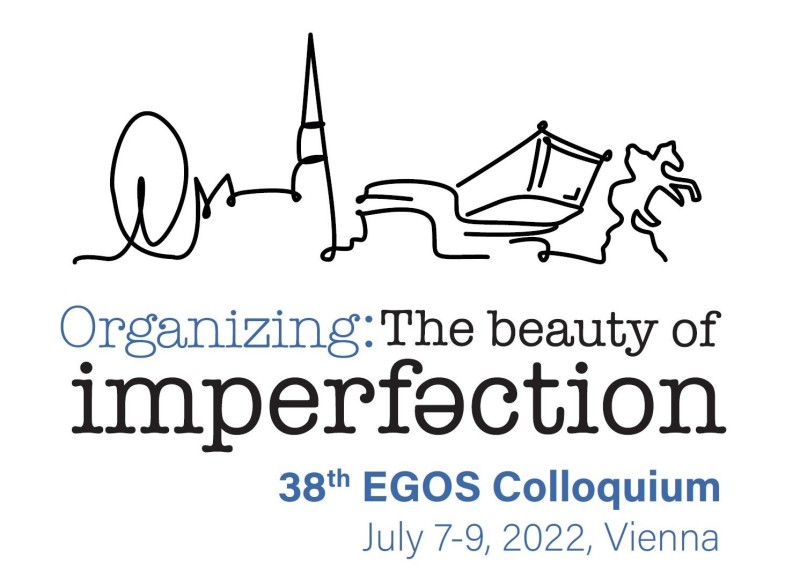Sub-theme 50: Organizational Research on and from the Global South: Overcoming the ‘Perfect/Imperfect’ Dichotomy
Call for Papers
The ‘perfect/imperfect’ dichotomy has been a central aspect of global knowledge production. The West/North has historically
constructed itself as the source of ostensibly superior and universal knowledge while representing the East/South as its lesser
and context-bound opposite (Mignolo, 2011; Said, 1978). This enduring distinction is perhaps most pervasive and palpable in
the field of Management and Organization Studies (MOS). Western/Northern MOS knowledge has long been recognized to claim universality
while ignoring much of the world’s cultural, intellectual and epistemic diversity. When considered, the South has typically
been approached as a useful zone for testing or extending Western management theory and a place from which to extract ‘exotic’
cases towards publications in Anglo-American journals (Prasad, 2003). So strong has the North/South discourse been that many
MOS scholars hailing from the South find themselves compelled to research their own contexts from a Eurocentric perspective
in a logic of ‘self-imposed coloniality’ (Ibarra-Colado, 2006).
Such a state of affairs has not gone without
counter-hegemonic struggles. In recent years, a sustained effort has been made to challenge Eurocentrism in MOS, not least
through calls for Southern theories/perspectives (Alcadipani, 2017; Alcadipani et al., 2012; Faria, 2013; Westwood et al.,
2014). A parallel effort has also been made to critique the unquestioned dominance of Anglo-American journals and its deleterious
effects on processes of MOS knowledge production (Boussebaa & Brown, 2017; Mir & Mir, 2013). Research has also analyzed
the specific ways in which the West exerts colonial-style power over Southern MOS (Abreu-Pederzini & Suárez-Barraza, 2020),
and studies have appeared that seek to decenter the study of substantive topics such as corporate globalization (Boussebaa,
2020) and the management of multinationals (Mir & Mir, 2009). Furthermore, empirical studies have taken a Southern perspective
on such phenomena as global production networks (Alamgir & Banerjee, 2019), business ethics (Khan, 2007) and management
education (Wanderley & Barros, 2020) in the Global South.
Notwithstanding all these efforts, we believe
much remains to be done to challenge, critique and overcome the representation of the Global South as the place of ‘imperfection’.
Our sub-theme aims to congregate scholars interested in producing or facilitating the production of MOS knowledge from a Southern
perspective. We encourage scholars to send papers that offer new insights and reflections on the North/South dichotomy in
MOS knowledge production and on the nature of MOS knowledge in the Global South. Potential questions and topics that could
be addressed include:
Can Eurocentrism in MOS be overcome and, if yes, how?
How might MOS knowledge be decolonized?
How can Southern epistemologies inform and contribute to the production of MOS knowledge?
What are the peculiarities of doing MOS research in the Global South?
How might self-imposed coloniality be challenged?
What challenges are faced in translating MOS knowledge from the Global South into knowledge forms deemed acceptable in Western MOS?
How can Western MOS be made more inclusive and capable of engaging with the Global South in non-Eurocentric ways?
These are just a few suggestions. We are open to contributions addressing questions not
listed here but relevant to our overarching theme.
References
- Abreu-Pederzini, G.D., Suárez-Barraza, M.F. (2020): “Just Let Us Be: Domination, the Postcolonial Condition, and the Global Field of Business Schools.” Academy of Management Learning & Education, 19 (1), 40–58.
- Alamgir, F., & Banerjee, S.B. (2019): “Contested compliance regimes in global production networks: Insights from the Bangladesh garment industry.” Human Relations, 72 (2), 272–297.
- Alcadipani, R. (2017): “Reclaiming sociological reduction: Analysing the circulation of management education in the periphery.” Management Learning, 48 (5), 535–551.
- Alcadipani, R., Khan, F.R., Gantman, E., & Nkomo, S. (2012): “Southern voices in management and organization knowledge.” Organization, 19 (2), 131–143.
- Boussebaa, M. (2020): “From cultural differences to cultural globalization: towards a new research agenda in cross-cultural management studies.” Critical Perspectives on International Business, 17 (3), 381–398.
- Boussebaa, M., & Brown, A.D. (2017): “Englishization, Identity Regulation and Imperialism.” Organization Studies, 38 (1), 7–29.
- Faria, A. (2013): “Border thinking in action: Should critical management get anything done?” In: J. Murphy, V. Malin & M. Silatoaja (eds.): Getting Things Done Practice in Critical Management Studies. Bingley: Emerald Group Publishing Limited, 190–205.
- Ibarra-Colado, E. (2006): “Organization Studies and Epistemic Coloniality in Latin America: Thinking Otherness from the Margins.” Organization, 13 (4), 463–488.
- Khan, F.R. (2007): “Representational approaches matter.” Journal of Business Ethics, 73 (1), 77–89.
- Mignolo, W. (2011): The Darker Side of Western Modenity. Durham & London: Duke University Press.
- Mir, R., & Mir, A. (2009): “From the Colony to the Corporation.” Group & Organization Management, 34 (1), 90–113.
- Mir, R., & Mir, A. (2013): “The colony writes back: Organization as an early champion of non-Western organizational theory.” Organization, 20 (1), 91–101.
- Prasad, A. (2003): Postcolonial Theory and Organizational Analysis: a Critical Engagement. New York: Palgrave.
- Said, E. (1978): Orientalism. London: Routledge.
- Wanderley, S., & Barros, A. (2020): “The Alliance for Progress, modernization theory, and the history of management education: The case of CEPAL in Brazil.” Management Learning, 51 (1), 55–72.
- Westwood, R., Jack, G., Kahn, F., & Frenkel, M. (2014): Core-Periphery Relations and Organisation Studies. London: Palgrave McMillan.


